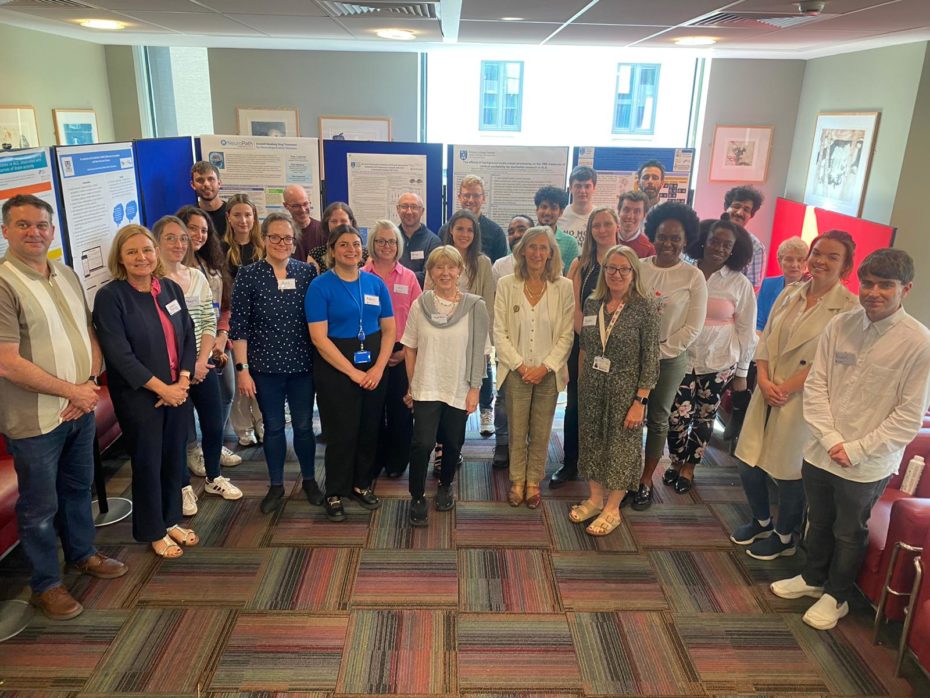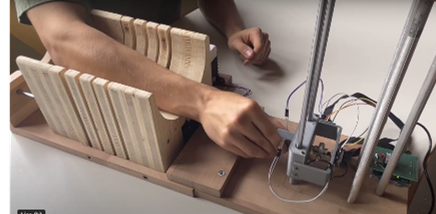Participate in our research
The NeuroMotor group is focused on using EEG or other electrophysiological signals such as electromyography (EMG) to improve understanding, prognosis and prediction of motor neuron diseases. Recordings take place at the research center of St James Hospital in Dublin, Ireland.
If you would like to be informed of research study opportunities, you can either send an email to ResearchMND@tcd.ie or sign up via the form below
Participation in MND Research
EEG Demonstration at FutureNeuro’s 2nd Launch




Gabriel and Helene attended the second launch of FutureNeuro on Tuesday May 14th, and presented the best of what EEG has to offer to dozens of interested executive officials and business partners of Science Foundation Ireland. They demonstrated electrophysiology recordings in action and discussed the projects that our lab is currently undertaking to advance ALS research, in line with FutureNeuro’s focus on Chronic and Rare Neurological Diseases. Overall, the event was a great success! We love showcasing our work to the public and our collaborators.
MND Global awareness day

Our team at the MND Global awareness day 2023. A reception was held at Trinity College Dublin to share developments within the Irish MND association and MND Research. An opportunity to spread the word about MND and share perceptions between clinicians, researchers, individuals with MND and the general public.
LiveWrist a project from Secondary school students from Don Bosco Landser, France

A project was developed in association with Don Bosco Landser Secondary School, France. Four students in their final year, specialising in Engineering Sciences, Desjonquères Arthur, Ladisenko William, Pillonel Nathan and Vitrey Gaspard, developed a complete acquisition system for measuring wrist mobility and gripping force between the thumb and index finger, with the help of their Engineering Science teacher, Mr Metzger.
Weakness in gripping between the thumb and index finger is one of the early clinical symptoms of Amyotrophic lateral sclerosis (ALS). The system created by the final-year students enables the measurement of gripping force between the thumb and index finger, as well as the detection of wrist rotation to control potential unintended movements. The system also includes a motorised armrest to adapt to different body types and potential mobility restrictions, common in patients with ALS disease.

After the completion of their project, thanks in part to the financial support of the ROTARY Club of Saint-Louis, France, the students were able to travel to Dublin, Ireland and meet with our research team. It was a day of discussions, experiences, and exchanges. The students brilliantly presented their entire project including mechanical and numerical aspects. The students benefitted from this project linguistically, humanly and in technical skills. As they expressed in their video (link below):
Working with Mr. Bista was a way for us to fight, at our level, against this disease, to contribute for a small part to the cause and, at the same time, support him in his thesis and research.
While contributing at their level to research against a rare and fatal disease represented an incredible victory for these young students, another victory awaited them: upon their return to Alsace, they won the first prize at the regional Academic Olympiads of Engineering Sciences and qualified for the national final in Grenoble, France.
Congratulations to Arthur, William, Nathan and Gaspard!
